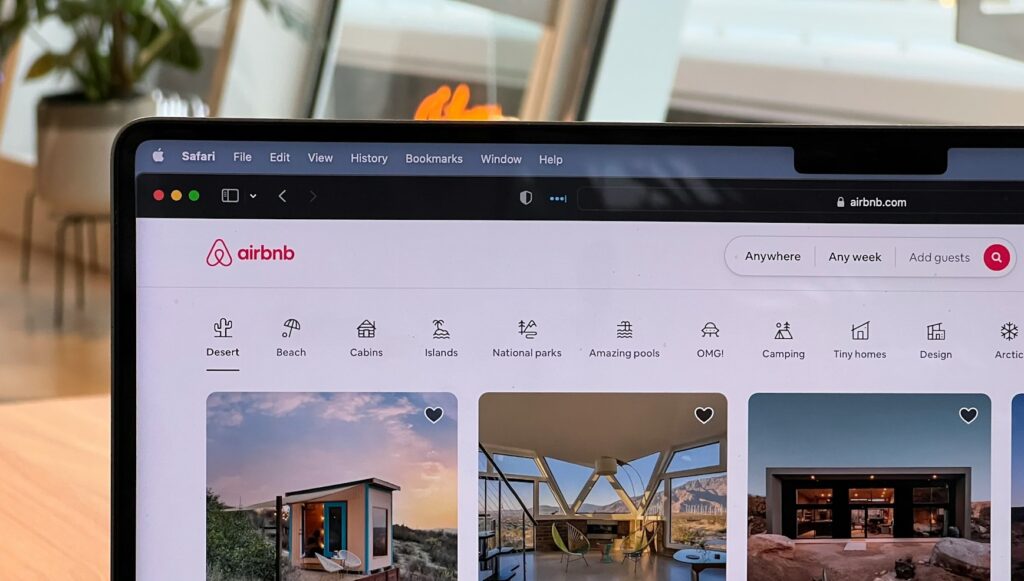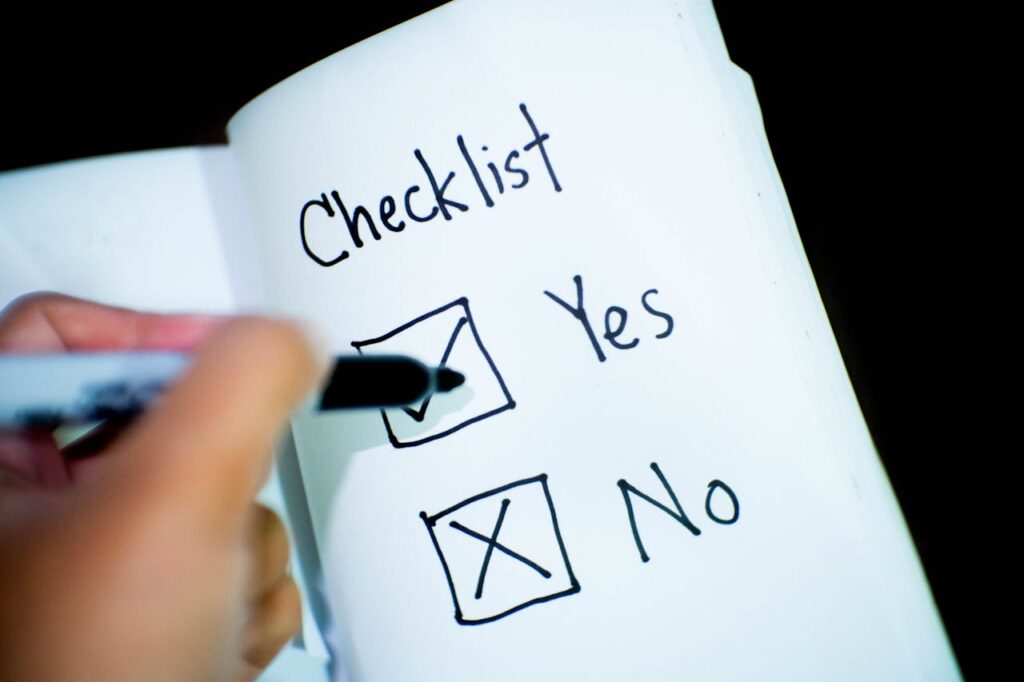
When booking an Airbnb, skipping the reviews can lead to a disappointing stay that potentially ruins your trip.
Beyond just looking at the property’s rating, taking a few minutes to browse reviews would give you a true sense of what to expect.
This is because you can’t tell everything about a property through the listing’s details and photos. Unfortunately, many travelers neglect this.
Reviews often reveal details that listings may not fully disclose or emphasize – certain things are better heard from other travelers. For example, while a listing might boast about its amenities, reviews can give you a more realistic sense of:
- The property’s cleanliness
- The host’s responsiveness, and how well they handle issues
- The safety of the neighborhood.
Such first-hand insights — which are hard to gauge from the listing alone — are especially crucial if you’re traveling with specific needs, such as for business.
Warning: If you think selecting a property with a high rating or price is the “safe” option, you may still be frustrated. You’re bound for an unoptimized stay if you gloss over key factors not detailed in the main listing.
However, it’s important to address a critical question: Are Airbnb reviews reliable?
This matters because not all reviews are trustworthy. By grasping the basics of how to spot fake or manipulated reviews, you’ll easily lower your risk of selecting the wrong property for your stay.
Don’t worry, this article will guide you through what to look for, so that you can productively browse Airbnb reviews.
Are Airbnb’s Reviews Reliable?

If you learn how to browse reviews and evaluate a listing’s reliability, this simple skill can repeatedly save you from unnecessary hassles on future trips.
To understand the legitimacy of Airbnb reviews, you should have a basic understanding of how the Airbnb review system works:
- Mutual reviews: Both the host and guest can review each other after the stay. The purpose is to reduce the odds of biased, retaliatory reviews
- Verified stays: Only guests who have booked and completed a stay are allowed to leave a review.
- No anonymity: Every review must be linked to a user profile, i.e. an actual person who booked and completed a stay.
These systems are put in place to promote honesty and transparency. If you think about it, for example, it makes sense to have reviews tied to verified stays and real identities.
Airbnb is generally trustworthy, with measures in place to minimize fake or manipulated reviews. Yet, these safeguards aren’t perfect, and both hosts and travelers can sometimes find ways to exploit loopholes, which can undermine the reliability of a listing’s reviews.
This article was originally published on unboundist.com. If it is now published on any other site, it was done without permission from the copyright owner.
Be Careful, as Airbnb’s Systems Aren’t Foolproof

Here’s why these systems aren’t foolproof.
Review swapping can occur. It is a manipulative tactic where Airbnb hosts exchange stays or enlist friends and family to leave positive reviews on each other’s listings. This tactic serves to artificially inflate a property’s rating, making it seem more appealing than it truly is.
There’s also review hijacking, where a host swaps the photos or descriptions of two different properties – one with great reviews and another with poor reviews — to transfer the positive reviews to the poorly reviewed property. As a result, the lower-quality property would suddenly have a better reputation, which is very deceiving. For instance, a Reddit user has mentioned knowing of someone who’d list two properties and practice such deception.
Moreover, negative reviews sometimes don’t appear, which can erode trust in Airbnb by creating the impression that hosts can remove unfavorable feedback. Airbnb, however, clarifies that reviews may be removed if they are deemed biased, retaliatory, or lacking relevant and helpful information. This suggests that some negative reviews might violate Airbnb’s terms of service because they are worded in overly aggressive or unfair ways.
Unfortunately, as a result, a property might have a higher rating than it truly deserves.
How to Spot Fake or Manipulated Reviews
Given these tactics, how can you – as a potential guest – tell if a listing’s reviews are trustworthy?
A logical thing to do is to rent only properties with many reviews and are rated at least 4 stars (4.5 stars are better).
Your chosen property (4-4.5* and above) for an ideal stay should have at least 30 reviews, but above 50 is better, and above 100 reviews is ideal.
After selecting a well-rated property, make sure you look into the reviews section and pay attention to these details:
- Timing of reviews: Ensure there are both recent reviews (to confirm the property is well-maintained) and older reviews (to avoid the risk of fake feedback or inexperienced hosts).
- Notice discrepancies: Compare the photos with the reviews. If something doesn’t add up — for example, if the photos look too different from what reviewers describe — it could be a sign of review manipulation.
Now, if you are willing to rent less expensive places with fewer or no reviews, it can still work. This assumes you have a higher risk tolerance and won’t be easily frustrated if things don’t go as planned. To lower your risk, communicate with the host before your trip by asking a lot of relevant questions.
If it’s a relatively new listing, it’s a good sign if the few reviews are spread out over several months rather than clustered within a short timeframe, which can be a potential red flag.
Side note: Not all reviews are fair or reasonable – some guests complain unfairly even when the Airbnb meets the promises made in the listing’s details and photos. They may blame hosts for apartments not being well-equipped or customized to their needs, often due to their own oversight. Don't be that guest. The tips in the following section will help you identify potential issues or imperfections, so you can better optimize your stay.
Using Airbnb Reviews Productively: What to Look For

Here’s a comprehensive list of aspects to look for in Airbnb reviews to determine if a property is the right fit for your stay
When a property catches your eye, just spend about 5 minutes to carefully review it — use these points as a checklist and start browsing its reviews with a critical eye.
1. Check-in and Check-out Process
The listing description may not reveal the ease of the check-in and check-out process, but guests who’ve experienced it firsthand may have things to say.
Pay attention to the check-in and check-out methods, and whether there is any complexity or flexibility involved.
- Ease of Check-In: Look for reviews that mention how smooth or challenging the check-in process was. Note whether it was self-check-in or if the host was present to greet you.
- Flexibility with Check-In and Check-Out Times: Reviews might mention whether the host was flexible with check-in and check-out times.
- Recent Changes or Complications: If there are recent changes or suggestions of complicated or unclear steps for accessing the property, such as multiple steps or codes that are hard to follow, you can avoid surprises and be informed before your stay.
2. Ease of Navigation
Navigation is a major factor that can affect your stay – look for any issues or clues in reviews regarding accessibility. Consider how easy it is to move in and out of the property, and ensure you can easily explore various parts of the city from your location:
- Proximity to public transport: How close is the property to public transportation options? Is the nearest train station within a 10-minute walk, or will you need a ride to get there?
- Elevator accessibility: Are the elevators available at all times, or are there restrictions? Are there multiple elevators to accommodate guests?
- Building Access: Assess how easy it is to enter and exit the building. Are there complex entry systems or restricted access hours?
Important note: Navigating access to an Airbnb can be more challenging than a hotel, as these are typically real homes rather than commercial properties. If you’re a busy traveler or have work commitments, waiting 10-15 minutes for a single elevator designated for travelers in a 30-story apartment building can be a significant inconvenience.
3. Reliability of Host
Besides firsthand communication, you can get a sense of the host’s responsiveness, problem-resolution skills, and overall reliability via the reviews.
Reviews often reveal how quickly and helpfully the host responds to inquiries and issues. Look at how the host handled any problems or complaints during previous stays.
Once again, pay attention to recurring themes in the reviews – multiple guests mentioning similar issues can signal red flags, as opposed to isolated complaints reflecting a single traveler’s negative experience.
4. Recent Reviews
Many travelers fail to distinguish between recent and older reviews, which may contain outdated information about a property.
They may get too excited about an apartment, without realizing that in recent months, there may be recurring issues that are unresolved – such as AC issues, bed bugs, or various appliance malfunctions.
Recent reviews, such as those within the last 1-3 months, are good for identifying any recent issues that may be highly relevant to your upcoming stay.
You’d want assurance that a property is well-maintained before committing to your stay.
5. Cleanliness Indicators
Look for comments on the overall cleanliness of the property, including key areas like bathrooms, kitchens, and linens.
Cleanliness is a crucial factor that’s rarely overlooked, since most travelers are often particular about cleanliness. Provided a listing has adequate reviews, cleanliness issues are often highlighted (if any) – such as stained carpets, unclean bathrooms, the presence of mold, and the presence of pests like cockroaches and bugs
Remember to look for recent feedback to ensure there are no significant or ongoing cleanliness problems.
6. Property Maintenance
Looks may be deceiving – you can’t tell that a property is well-maintained just by looking at the photos and aesthetics.
A property is a potential red flag if recent reviews suggest maintenance issues, especially if they were not well handled by the host. This can provide clues about the property’s upkeep.
Check for mentions of maintenance issues such as broken appliances, plumbing problems, the state of its furniture, walls, and floors, or other wear and tear.
7. Lighting
Lighting can become a crucial factor based on the purpose and length of your stay. If you’re staying for several weeks or months, you may be more particular about lighting as you’d want to be comfortable.
Again, it’s hard to tell by the photos. The listing details may indicate what lighting the apartment is equipped with, but it’s wise to check the reviews and ask the host directly about the lighting options available, such as dimmable lights or multiple light sources.
For digital nomads or business travelers who plan to work from their Airbnb, proper lighting is key for productivity. Adequate, well-positioned lighting or the presence of natural light can help reduce eye strain and improve work quality.
For vacationers or those seeking relaxation, lighting impacts the ambiance of the space. Well-lit areas can create a pleasant atmosphere. You would much prefer warmer lighting compared to harsh, cool-white lighting.
8. Location and Neighbourhood Assessment
While a listing may not give you enough unbiased info, reviews can better help you access the Airbnb’s location and neighbourhood:
- Walkability and Navigation: Besides proximity to public transport options, look for indications of walkability. Look for reviews mentioning nearby attractions, restaurants, and shops.
- Safety: Look for mentions of crime or safety issues and how the host or property has addressed them.
- Other neighbourhood factors: A combination of different reviews can reveal things about local vibe, distance from attractions, and neighbourhood noise, amongst other things.
Important note: In particular, neighborhood safety is a factor you shouldn’t overlook when booking an Airbnb. Unlike hotels, these properties may often be located outside the main tourist hubs or well-known safe areas that visitors typically frequent. The surrounding environment may be less familiar or predictable. It’s wise to assess safety of the surrounding location and neighbourhood before booking an Airbnb.
9. Unique features and miscellaneous items
Everyone has different preferences and needs. Here are some other factors you may consider important:
- Views or Outdoor Space: Look for mentions of the view from the property. If the listing includes a patio, garden, or balcony, see if guests found these areas enjoyable and well-maintained.
- Workspace Suitability: If you need to work, reviews might discuss the work-friendliness of an Airbnb – look for comments on its desks, chairs, lighting, and noise, and so on.
- Furniture Comfort: See if previous guests mention the comfort level of beds and sofas.
Summary: Checklist for a Good Stay
With this guide, you’re now equipped to make the most of Airbnb reviews to ensure a positive experience.
When a property catches your eye, you can use these points as a checklist and start browsing its reviews with a discerning eye.
If unsure, reach out to the host. A responsive and transparent host is often a good sign.
Additionally, take advantage of Airbnb’s search filters to narrow down your options to properties with high ratings, Superhost status, or specific amenities that matter most to you.